Second Runyakitara Orthography Training
Kabale University Institute of Language Studies organized a two weeks Runyakitara orthography intensive training that started on the 6th to the 18th of January 2020. The training attracted different categories of people including primary and secondary school teachers, S.6 vacation students among others. The students who spent two weeks of intensive training at Kabale University, all successfully concluded the program and were awarded certificates. This followed the first one that was conducted in May 2019 and it was the second time this training was being conducted at Kabale University. During the May Training only secondly school teachers attended the training however this one was mostly for young people attended and this is meant to help them learn and love their native mother language. In May this year, a similar training will be again conducted.
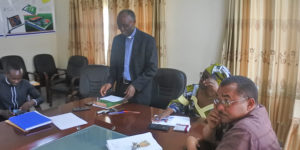
The main objective of this kind of training was to teach people about the correct use of Runyakitara as a language in both speaking and writing, secondly it is meant to sharpen and improve Runyakitara teachers who are already in service who teach in both primary and secondary schools by equipping them with more skills of writing the language and thirdly to give service to the community through teaching and writing system of the language to everyone who qualifies and is interested in studying the language.
At the end of the training, the Institute of Language Studies organized a special ceremony to award certificates to participants and it was graced by the Vice-Chancellor and the Academic Registrar of Kabale University.
According to Professor Emmanuel Muranga, the Director Institute of Language Studies and also the Program coordinator for Runyakitara program, Runyakitara was introduced in 1990 and Professor Muranga was one of the four people that spearheaded the development and later teaching of the program.
Professor Muranga said Runyakitara is a combination of four major dialects that is Runyankole, Rukiga, Runyoro, Rutoro, “People from Bunyoro, Tooro, Ankole and Kigezi can easily understand each other Professor Muranga said.” He further said this program was introduced because most people can speak good Rukiga, good Runyakole, good Rutooro and Runyoro but when it comes to writing it, it becomes difficult, words are difficult to be differentiated and many words ends up being confused. So this training was aimed at equipping students/participants with Runyakitara writing skills.
During the training, students were taught, assessed and graded, Students received certificates that clearly to their grades.
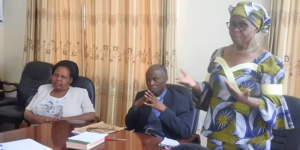
Professor Joy C. Kwesiga the Vice-Chancellor Kabale University graced the occasion. In her address she thanked participants in the Runyakitara Orthography training for love to study and improve their native language. She observed that the course was being attended by young people, it’s very good to keep acquiring more knowledge professor Joy Kwesiga encouraged the young participants who were majorly A ‘Level leavers, she appreciated them and thanked parents and guardians for supporting them. Professor Joy Kwesiga also noted that, there was gender balance amongst participants and more so female participants who attended the training with babies were given more credit, despite having babies they could not afford to miss the training, that shows that mothers were eager to study.
In her address proffers joy Kwesiga said there is no limit while acquiring knowledge
Professor Kwesiga appreciated the diversity of language “a language can bring together many people, we should promote it further and be proud of our mother tongue.”
Professor Kwesiga said, As Kabale University, we are lucky to be strategically located in the center of people speaking different languages, Rwanda and Burundi where French is spoken, Democratic Republic of Congo with Kiswahili and Uganda speaking English, all that has encouraged us to teach languages and to promote the study of languages at Kabale University.
The Ceremony was concluded with awarding of certificates and over sixty (60) participants have concluded the training. This kind of opportunity has increased opportunities for participants as most people who completed this course last year, UNEB invited them to mark Runyakitara O’Level exams.


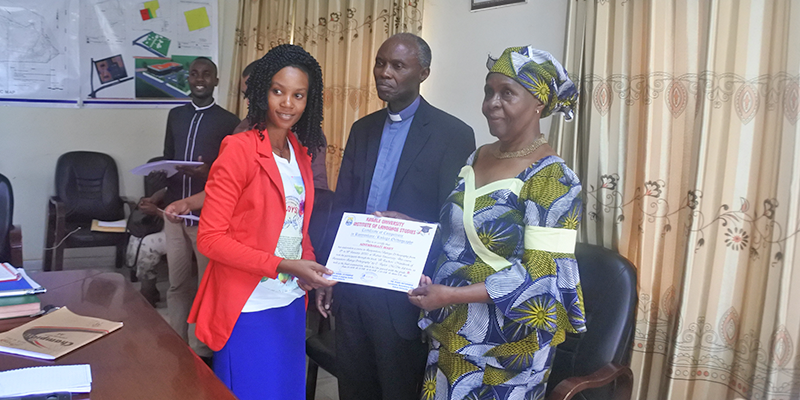
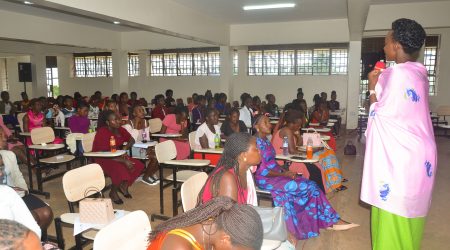
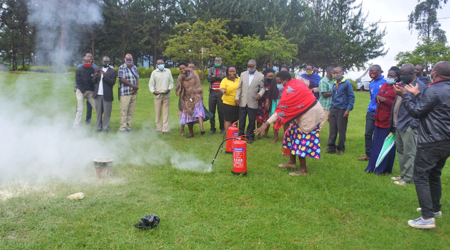
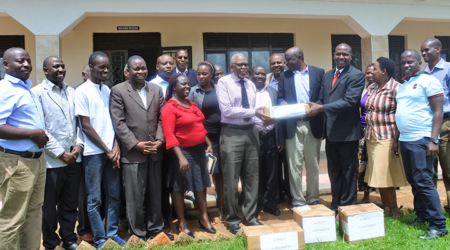
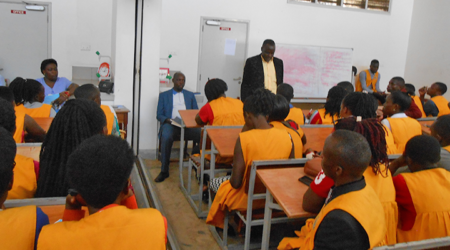
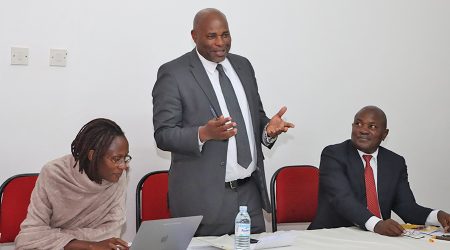
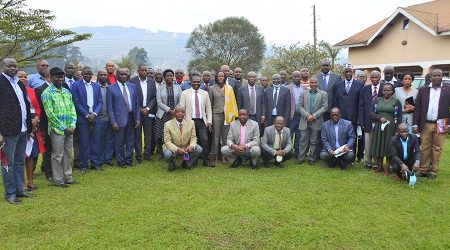
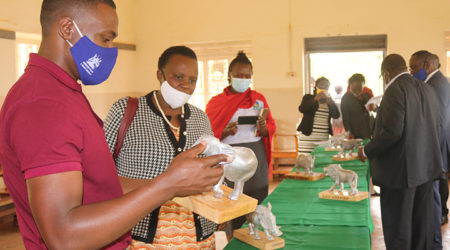
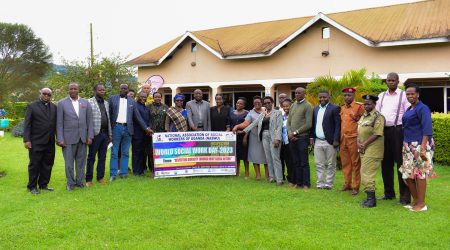
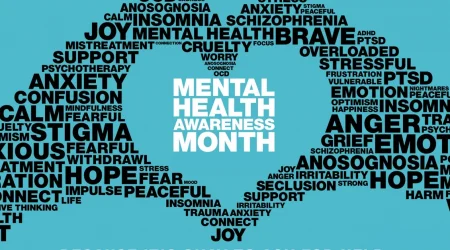
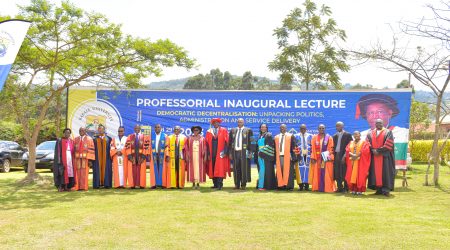
Leave a Reply